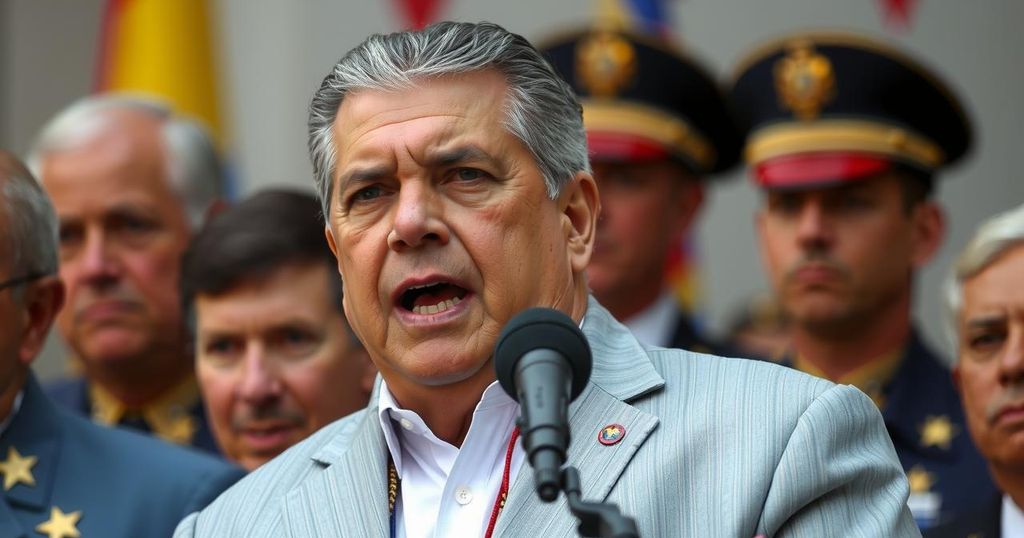Maduro’s Sworn In Amidst Allegations of Electoral Fraud in Venezuela

Nicolás Maduro was sworn in for a third term in Venezuela amidst widespread allegations of electoral fraud. The opposition, led by González, claims to have won based on verified voting center receipts. Several Latin American leaders recognize González as president-elect. As international engagement with Venezuela evolves, the implications for democracy in the region are significant, highlighting ongoing geopolitical challenges.
Nicolás Maduro was sworn in for a third presidential term in Venezuela, continuing a reign that many observers have deemed increasingly authoritarian. His alleged electoral victory lacks credible evidence, with the opposition asserting that they actually won. Voting center receipts collected by the opposition and validated by various independent observers indicate that opposition candidate González achieved a significant victory over Maduro, leading some to label this election as one of the most fraudulent in Latin America’s recent history.
Maduro’s inauguration occurred amidst tight security measures, including the closure of borders and the deployment of military assets, while prominent Latin American leaders, including those from Argentina, Peru, and Panama, have recognized González as the rightful president-elect. Following this election scandal, the U.S. and other countries face the challenge of engaging with Maduro while considering the claims of González’s leadership.
Despite the Trump administration’s sanctions during his previous term, the efficacy of such pressure tactics is now under scrutiny. The Biden administration had attempted a diplomatic agreement with Maduro for fair election conditions, but this agreement faltered. Independent observers, including the Carter Center, have confirmed that evidence supports González’s claim of electoral victory, suggesting a significant public sentiment against Maduro’s regime.
Overall, the situation in Venezuela represents a critical moment for democracy in the region, raising concerns among leaders about the implications of Maduro’s enduring power in the face of broad opposition support and international recognition of González.
Venezuela’s political landscape has been tumultuous for over a decade, particularly under Nicolás Maduro’s leadership, which has been characterized by accusations of authoritarianism and electoral fraud. The recent elections have drawn significant scrutiny, culminating in claims from the opposition that they secured victory against Maduro. Authentication of these claims comes from independent voting receipts and electoral monitors, while international responses to Maduro’s administration continue to evolve, reflecting a complicated geopolitical dynamic in Latin America.
In conclusion, Nicolás Maduro’s swearing-in signifies a prolonged authoritarian rule in Venezuela, despite substantial opposition evidence questioning the legitimacy of his electoral victory. The international community, particularly the United States, now faces the daunting task of navigating relationships between two conflicting leadership claims in Venezuela, with implications for regional stability and democracy. As recognition of the opposition’s victory mounts, the situation underscores important lessons regarding the effectiveness of sanctions and diplomatic engagement with such regimes.
Original Source: www.washingtonpost.com








